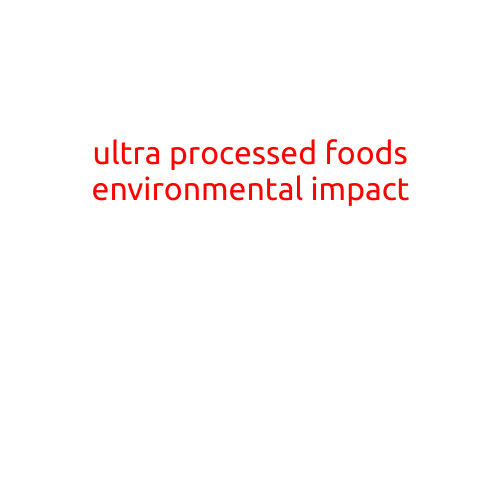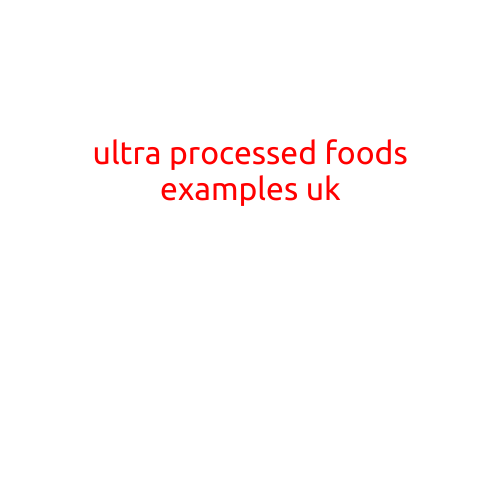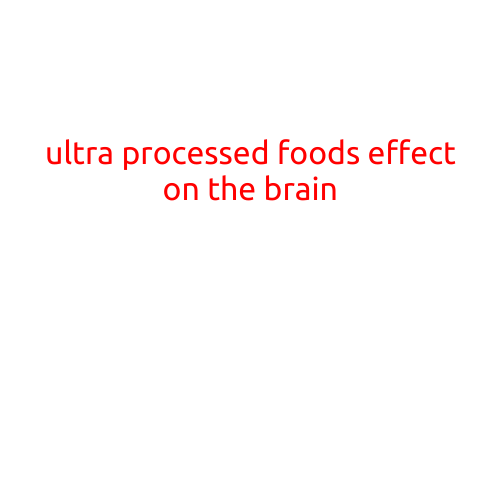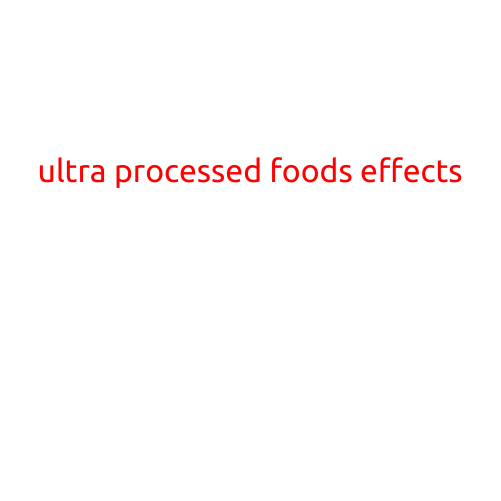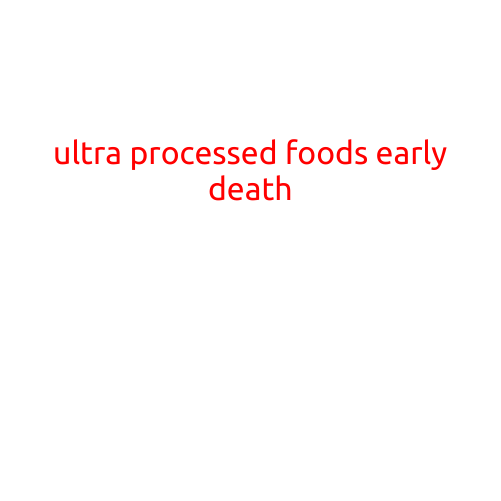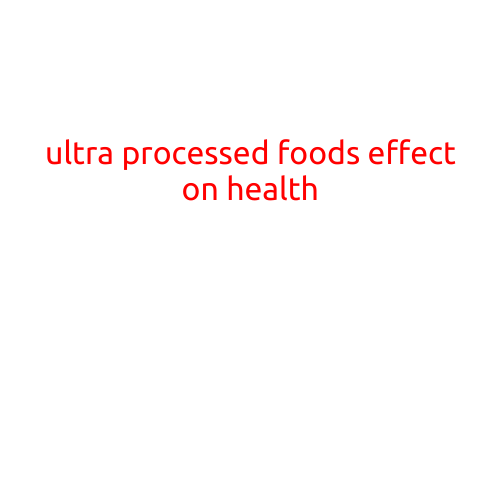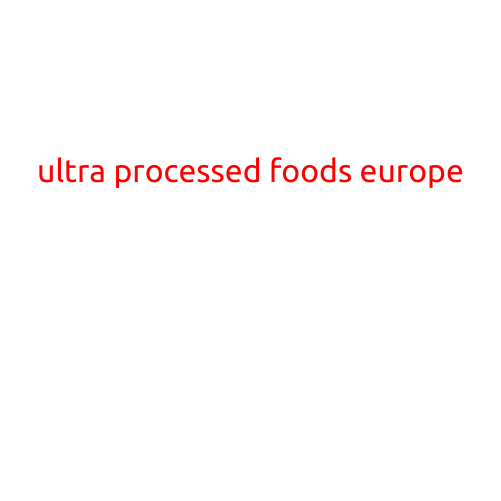
Ultra-Processed Foods in Europe: A Growing Concern for Public Health
In recent years, the European Union has witnessed a significant increase in the consumption of ultra-processed foods, a type of food that has undergone extensive processing, often using chemicals and artificial additives. These foods are typically found in the frozen food section, snack aisles, and convenience stores of supermarkets across the continent. While they may seem convenient and appealing, the scientific consensus is that ultra-processed foods are a major contributor to various health problems, including obesity, diabetes, and cardiovascular disease.
What are Ultra-Processed Foods?
Ultra-processed foods are defined as edible products that contain a high proportion of ingredients derived from food products, such as sweeteners, fats, and protein isolates. These foods are often created in factories using a combination of ingredients, flavor enhancers, and preservatives. Examples of ultra-processed foods include frozen pizzas, heat-and-eat meals, sugared cereals, and processed meats like sausages and deli meats.
The Rise of Ultra-Processed Foods in Europe
In the past two decades, the consumption of ultra-processed foods has increased dramatically in Europe. According to a study published in the journal Public Health Nutrition, the consumption of ultra-processed foods among Europeans rose by 38% between 1991 and 2014. This increase is attributed to various factors, including changes in lifestyles, increased availability of convenience foods, and aggressive marketing by the food industry.
The Health Risks Associated with Ultra-Processed Foods
The scientific community is increasingly aware of the negative health effects associated with the consumption of ultra-processed foods. A diet rich in these foods has been linked to an increased risk of:
- Obesity: Ultra-processed foods are often high in added sugars, saturated fats, and salt, which can lead to weight gain and obesity.
- Type 2 Diabetes: Consuming high amounts of ultra-processed foods has been linked to an increased risk of developing type 2 diabetes.
- Cardiovascular Disease: Ultra-processed foods are often high in unhealthy fats, sodium, and added sugars, which can increase the risk of cardiovascular disease.
- Cancer: Some studies suggest that a diet rich in ultra-processed foods may increase the risk of certain types of cancer.
Policy Initiatives to Reduce Ultra-Processed Foods in Europe
In response to the growing concern about ultra-processed foods, the European Union has implemented several policy initiatives to reduce their consumption. Some of these initiatives include:
- Nutrition Labels: The EU has introduced a nutrition labeling system that requires food manufacturers to display the nutritional content of their products, including added sugars, salt, and saturated fats.
- Food Reformulation: The EU has encouraged food manufacturers to reformulate their products to reduce the levels of added sugars, salt, and saturated fats.
- Taxation: Some European countries, such as France and Mexico, have introduced taxes on sugary drinks and snacks to reduce their consumption.
- Food Education: The EU has launched public health campaigns to educate consumers about the importance of healthy eating and to promote the consumption of whole, unprocessed foods.
Conclusion
The consumption of ultra-processed foods in Europe is a growing concern for public health. These foods are high in unhealthy ingredients and have been linked to various health problems, including obesity, diabetes, and cardiovascular disease. To reduce their consumption, the European Union has implemented several policy initiatives, including nutrition labeling, food reformulation, taxation, and food education. As consumers, it is essential to be aware of the ingredients and nutritional content of the foods we eat and to make informed choices to promote our overall health and well-being.
